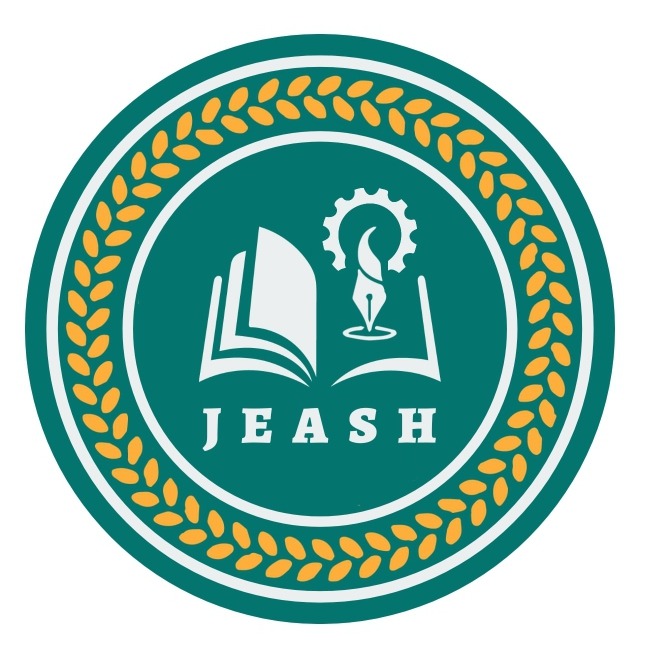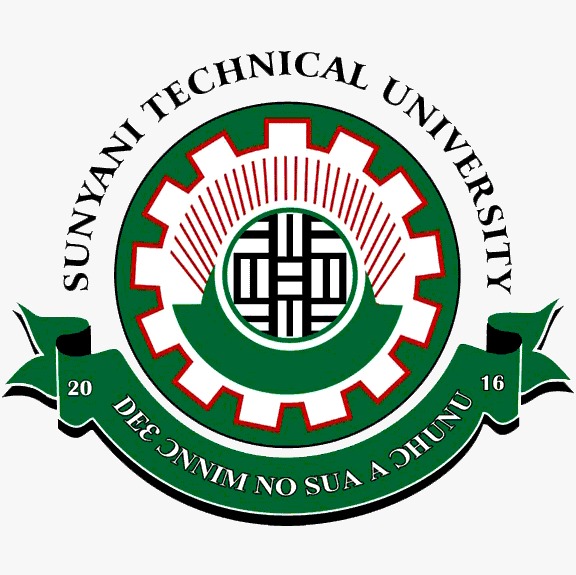Main Article Content
Abstract
The study's objective was to evaluate the effect of the ADDIER and ASSURER models on the academic performance of students. A test was used to collect data from Sunyani Technical University's final-year hospitality students in Ghana as part of the study's experimental research design. SPSS version 20 was used to manage and process the data. The data were analysed using descriptive and inferential statistics. The study unveiled that the ADDIER and ASSURER models have impact on students’ academic performance. Comparatively, it can be seen from the values of the effect size statistics that the ASSURER Model has a stronger impact on students' academic performance than the ADDIER Model. The study is important as it has provided empirical evidence on effect of reflection processes on the students' academic performance and expanded literature on hospitality education. It is recommended that the study be repeated with a large sample size in other tertiary institutions to confirm the external validity of the theoretical expansions.
Keywords
Article Details

This work is licensed under a Creative Commons Attribution 4.0 International License.
References
- Adu-Ampong, E. A. (2018). Tourism and national economic development planning in Ghana, 1964–2014. International Development Planning Review, 40(1), 75-95.
- Amidu, R. (2016). Exploring real estate students’ learning approaches: Reflective Teaching and Performance. In 48th ASC Annual International Conference (1-10). Associated Schools of Construction.
- Angiah, D. L. (2013). Using instructional design principles to develop effective information literacy instruction. C&RL News.
- Besnoy, K. D., Maddin, E., Steele, E., & Eisenhardt, S. (2015). The friendship journey: Developing global understanding in the middle grades. Journal of Catholic Education, 18(2), 44-53
- Boahin, P., & Hofman, A, W. H. (2012). Implementation of innovations in higher education: The case of competency-based training in Ghana. Innovations in Education and Teaching, 49(3), 283-293.
- Boateng, J. K., & Boadi, C. (2015). Evaluating teachers of adult learners in reflective practice. International Journal of Economics, Commerce and Management, 3, 1-16.
- Coryell, J. E., Spencer, B, J., & Sehin, O. (2013). Cosmopolitan adult education andglobal citizenship: Perceptions from European itinerant graduate professional
- Deloitte. (2018). preparing tomorrow’s workforce for the Fourth Industrial Revolution For business: A framework for action. Retrieved from https://www2.deloitte.com/content/-4IR.pdf.
- Edmonds, GS, Branch, RC, & Mukherjee, P. (1994). Innovations in instructional technology. New York: Addison-Wesley Longman.
- Essuman, O.S., & Asante, E.K. (2010). Reflective practice in teaching. The Institute for Educational Development and Extension: University of Education Winneba.
- Farrell, T. S. C. (2015). Promoting teacher reflection in second language education: A framework for TESOL professionals. New York, NY: Routledge
- Gagne, R. M., Wager, W. W., Golas, K. C., & Keller, J. M. (2005). Principles of instructional design (5th Ed.). Belmont, CA: Wadsworth/Cengage Learning.
- Ghana Tourism Authority (2020). List of hotels in Ghana, Accra: Ghana Tourism Authority
- Goodley, C. (2018). Reflecting on being an effective teacher in an age of measurement. Reflective Practice, 19, 167-178. https://doi.org/10.1080/14623943.2018.1437401
- Gustafson, K., Branch, R.M. (1997). Instructional Design models. Syracuse, NY: ERIC Clearing house on Information and Technology.
- Heinrich, R., Molenda, M., & Russell, J. (1993). Instructional Media and new Technologies. New York: Macmillan.
- Hospitality Skills Oversight Group. (2018). Ireland’s €5
- billion hospitality industry skills, careers, growth, 2018. Final Report retrieved, 14/07/18 fromhttp://www.skillsireland.ie/Publications/2018.pdf
- Helyer, R. (2015). Learning through reflection: The critical role of reflection in work-based learning. Journal of Work-Applied Management, 7(1), 15-27.
- Kamath, M. (2018). 21st century skills: surviving the 4th Industrial Revolution. Retrieved from https://www.arcskillsforwork.com/blog/21st-century-skills-surviving-the-fourth-industrial-revolution
- Kheirzadeh, S., & Sistani, N. (2018). The Effect of Reflective Teaching on Indonesia EFL Students’ Achievement: The Case of Teaching Experience and Level of Education. Australian Journal of Teacher Education, 43, 8-16.https://doi.org/10.14221/ajte.2018v43n2.8
- Korthagen, Fred A. J. (2001) Linking practice and theory: The Pedagogy of Realistic Teacher Education. Mahawah, NJ: Lawrence Erlbaum Associates.
- Kuranchie, A. (2021). Research made easy. (3rd Ed.). Kumasi, Ghana: Bookworm publications
- Larsen, D. P., London, D. A., & Emke, A. R. (2016). Using reflection to influence practice: Student perceptions of daily reflection in clinical education. Perspectives on Medical Education, 5(5), 285-291. doi:10.1007/s40037-016-0293-1
- Léon-Henri, D. D. P. (2022). 12 benefits of reflective teaching and learning. Reflective teaching journal [acess:12/05/22]. https://reflectiveteachingjournal.com
References
Adu-Ampong, E. A. (2018). Tourism and national economic development planning in Ghana, 1964–2014. International Development Planning Review, 40(1), 75-95.
Amidu, R. (2016). Exploring real estate students’ learning approaches: Reflective Teaching and Performance. In 48th ASC Annual International Conference (1-10). Associated Schools of Construction.
Angiah, D. L. (2013). Using instructional design principles to develop effective information literacy instruction. C&RL News.
Besnoy, K. D., Maddin, E., Steele, E., & Eisenhardt, S. (2015). The friendship journey: Developing global understanding in the middle grades. Journal of Catholic Education, 18(2), 44-53
Boahin, P., & Hofman, A, W. H. (2012). Implementation of innovations in higher education: The case of competency-based training in Ghana. Innovations in Education and Teaching, 49(3), 283-293.
Boateng, J. K., & Boadi, C. (2015). Evaluating teachers of adult learners in reflective practice. International Journal of Economics, Commerce and Management, 3, 1-16.
Coryell, J. E., Spencer, B, J., & Sehin, O. (2013). Cosmopolitan adult education andglobal citizenship: Perceptions from European itinerant graduate professional
Deloitte. (2018). preparing tomorrow’s workforce for the Fourth Industrial Revolution For business: A framework for action. Retrieved from https://www2.deloitte.com/content/-4IR.pdf.
Edmonds, GS, Branch, RC, & Mukherjee, P. (1994). Innovations in instructional technology. New York: Addison-Wesley Longman.
Essuman, O.S., & Asante, E.K. (2010). Reflective practice in teaching. The Institute for Educational Development and Extension: University of Education Winneba.
Farrell, T. S. C. (2015). Promoting teacher reflection in second language education: A framework for TESOL professionals. New York, NY: Routledge
Gagne, R. M., Wager, W. W., Golas, K. C., & Keller, J. M. (2005). Principles of instructional design (5th Ed.). Belmont, CA: Wadsworth/Cengage Learning.
Ghana Tourism Authority (2020). List of hotels in Ghana, Accra: Ghana Tourism Authority
Goodley, C. (2018). Reflecting on being an effective teacher in an age of measurement. Reflective Practice, 19, 167-178. https://doi.org/10.1080/14623943.2018.1437401
Gustafson, K., Branch, R.M. (1997). Instructional Design models. Syracuse, NY: ERIC Clearing house on Information and Technology.
Heinrich, R., Molenda, M., & Russell, J. (1993). Instructional Media and new Technologies. New York: Macmillan.
Hospitality Skills Oversight Group. (2018). Ireland’s €5
billion hospitality industry skills, careers, growth, 2018. Final Report retrieved, 14/07/18 fromhttp://www.skillsireland.ie/Publications/2018.pdf
Helyer, R. (2015). Learning through reflection: The critical role of reflection in work-based learning. Journal of Work-Applied Management, 7(1), 15-27.
Kamath, M. (2018). 21st century skills: surviving the 4th Industrial Revolution. Retrieved from https://www.arcskillsforwork.com/blog/21st-century-skills-surviving-the-fourth-industrial-revolution
Kheirzadeh, S., & Sistani, N. (2018). The Effect of Reflective Teaching on Indonesia EFL Students’ Achievement: The Case of Teaching Experience and Level of Education. Australian Journal of Teacher Education, 43, 8-16.https://doi.org/10.14221/ajte.2018v43n2.8
Korthagen, Fred A. J. (2001) Linking practice and theory: The Pedagogy of Realistic Teacher Education. Mahawah, NJ: Lawrence Erlbaum Associates.
Kuranchie, A. (2021). Research made easy. (3rd Ed.). Kumasi, Ghana: Bookworm publications
Larsen, D. P., London, D. A., & Emke, A. R. (2016). Using reflection to influence practice: Student perceptions of daily reflection in clinical education. Perspectives on Medical Education, 5(5), 285-291. doi:10.1007/s40037-016-0293-1
Léon-Henri, D. D. P. (2022). 12 benefits of reflective teaching and learning. Reflective teaching journal [acess:12/05/22]. https://reflectiveteachingjournal.com






